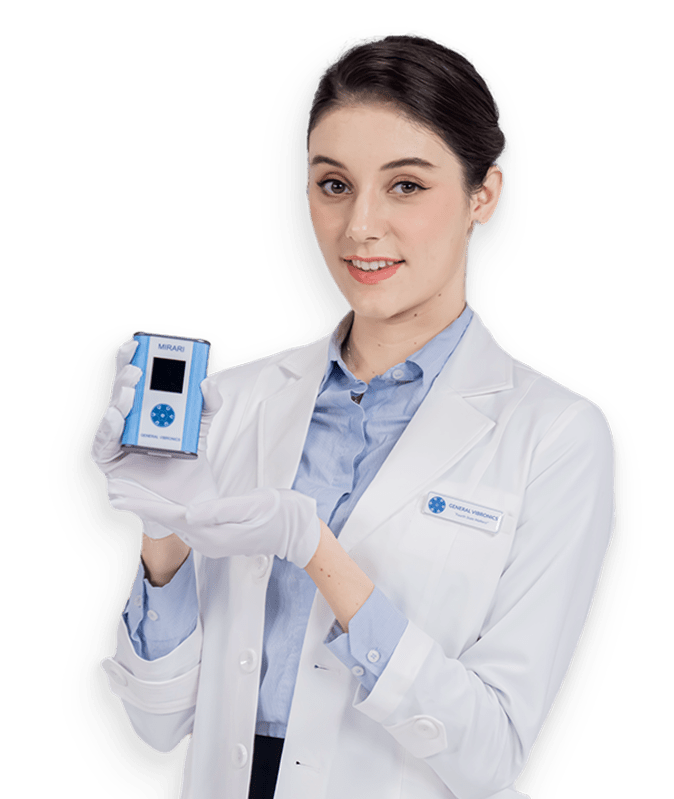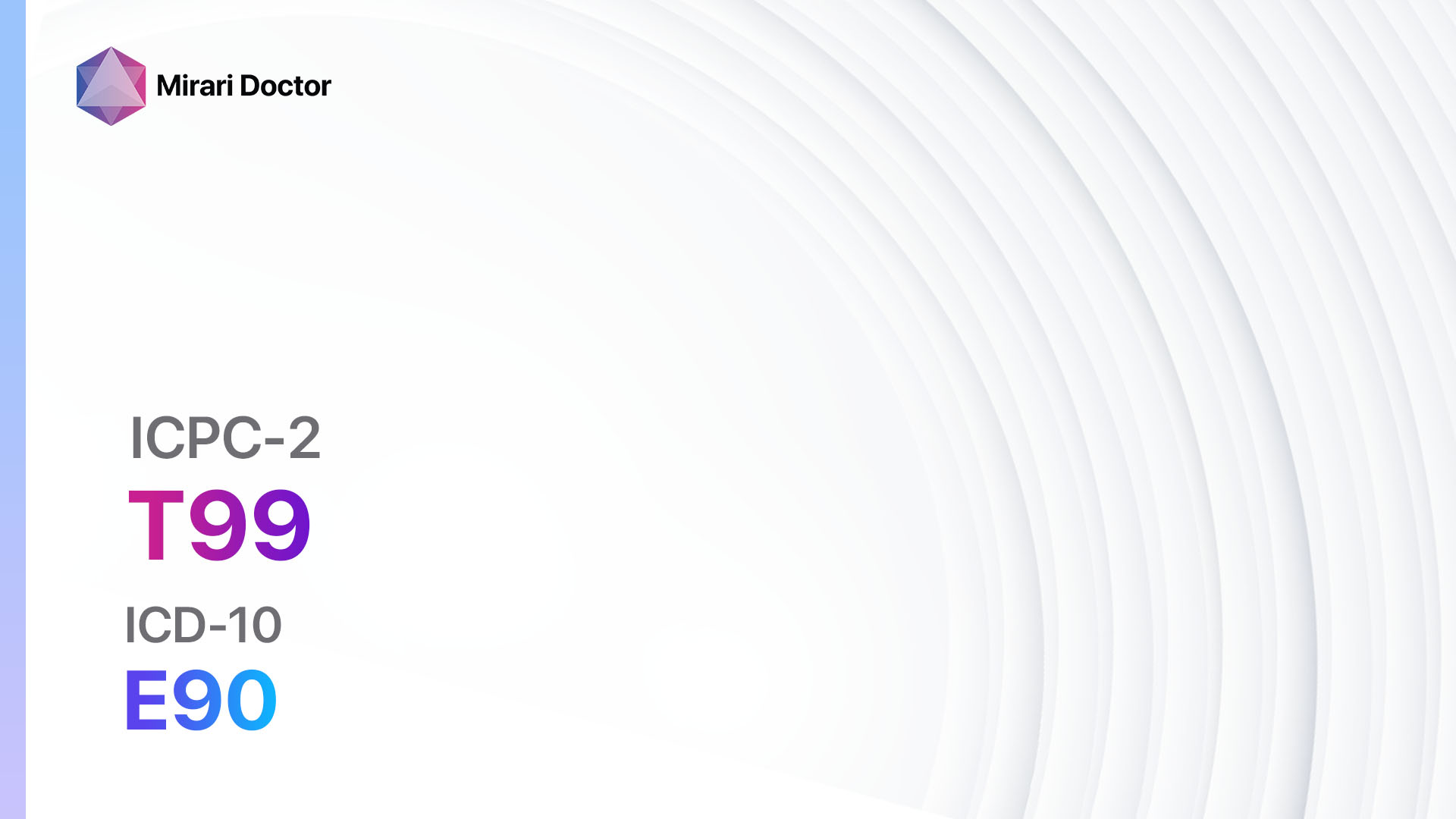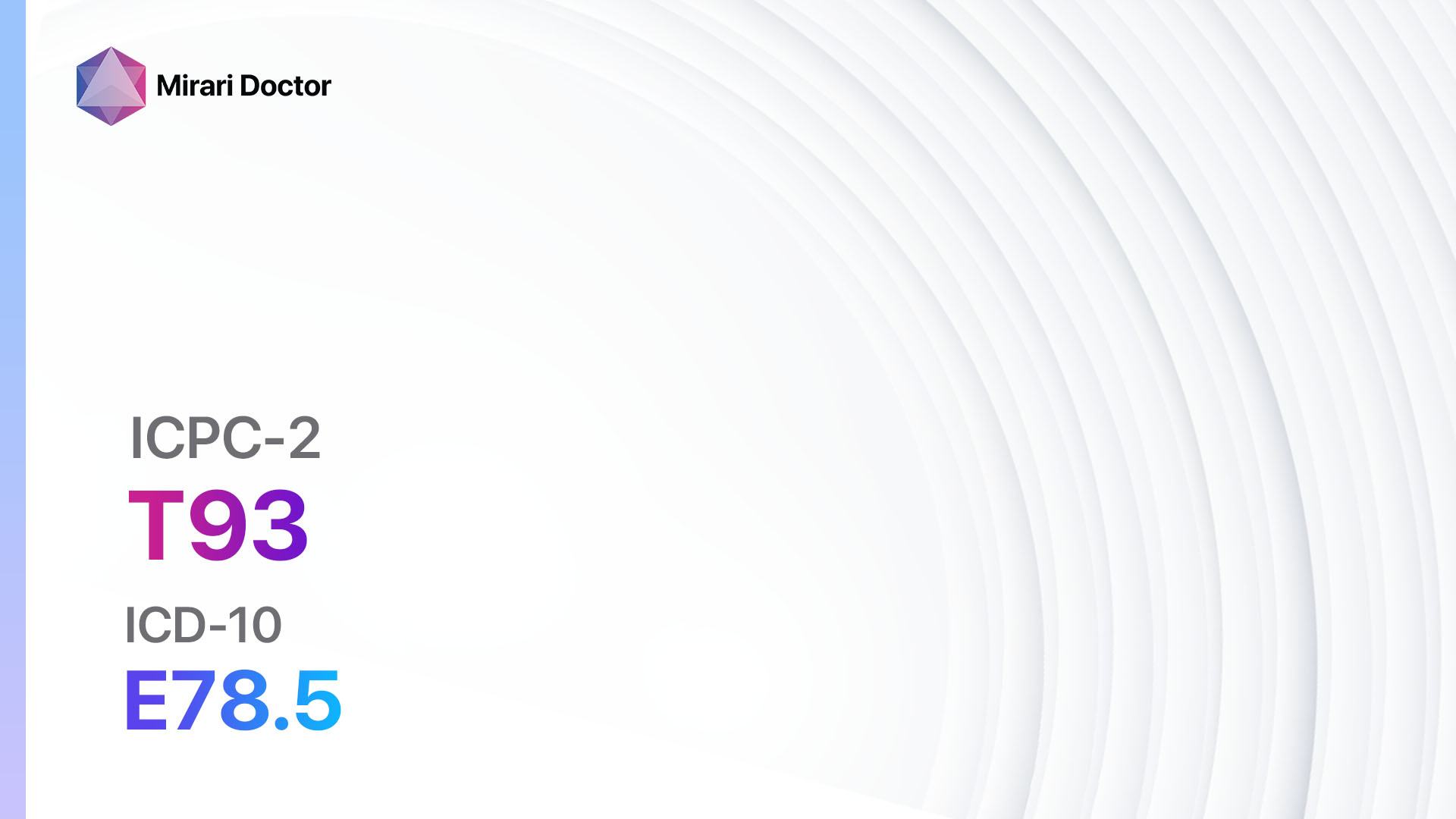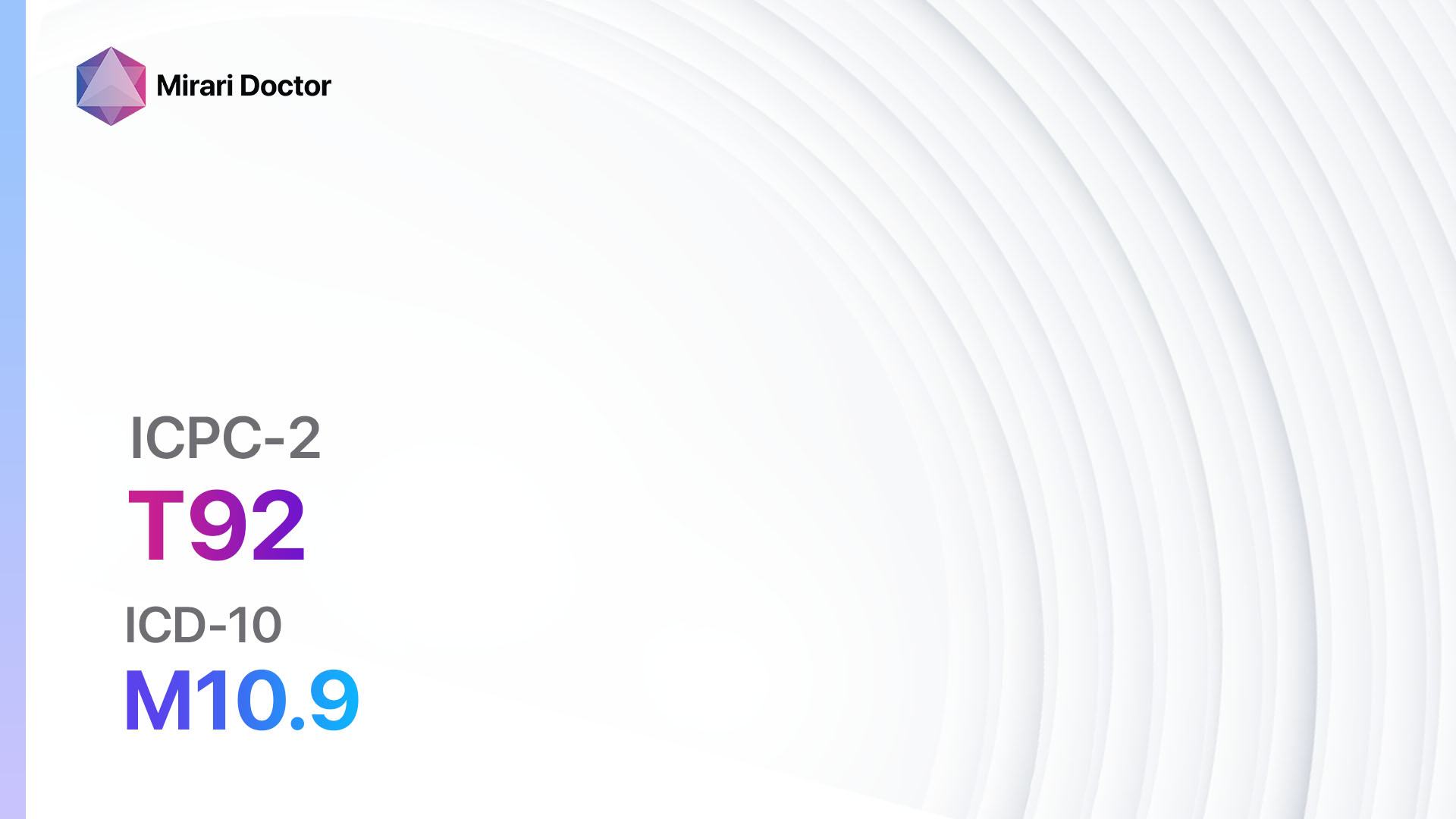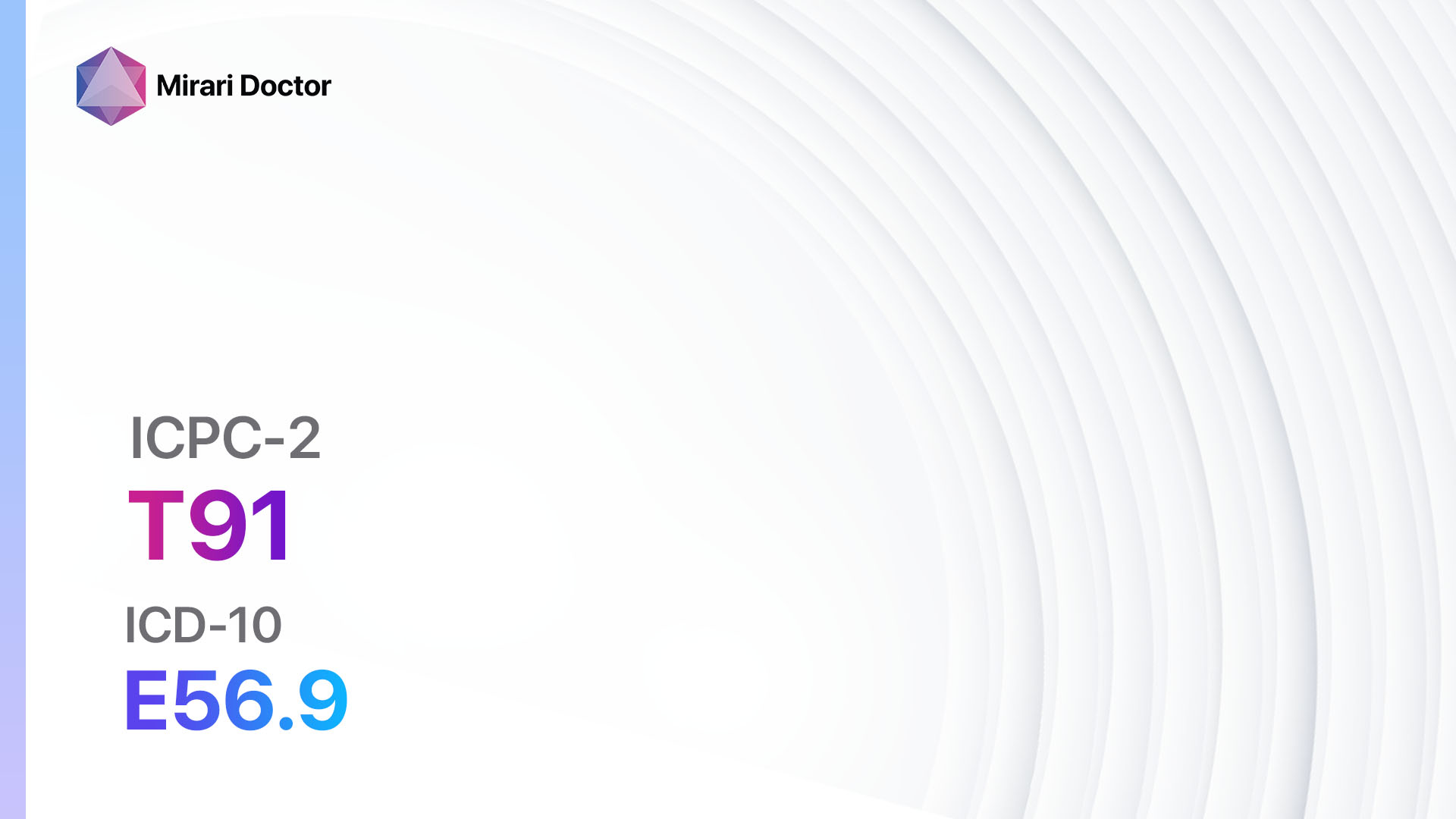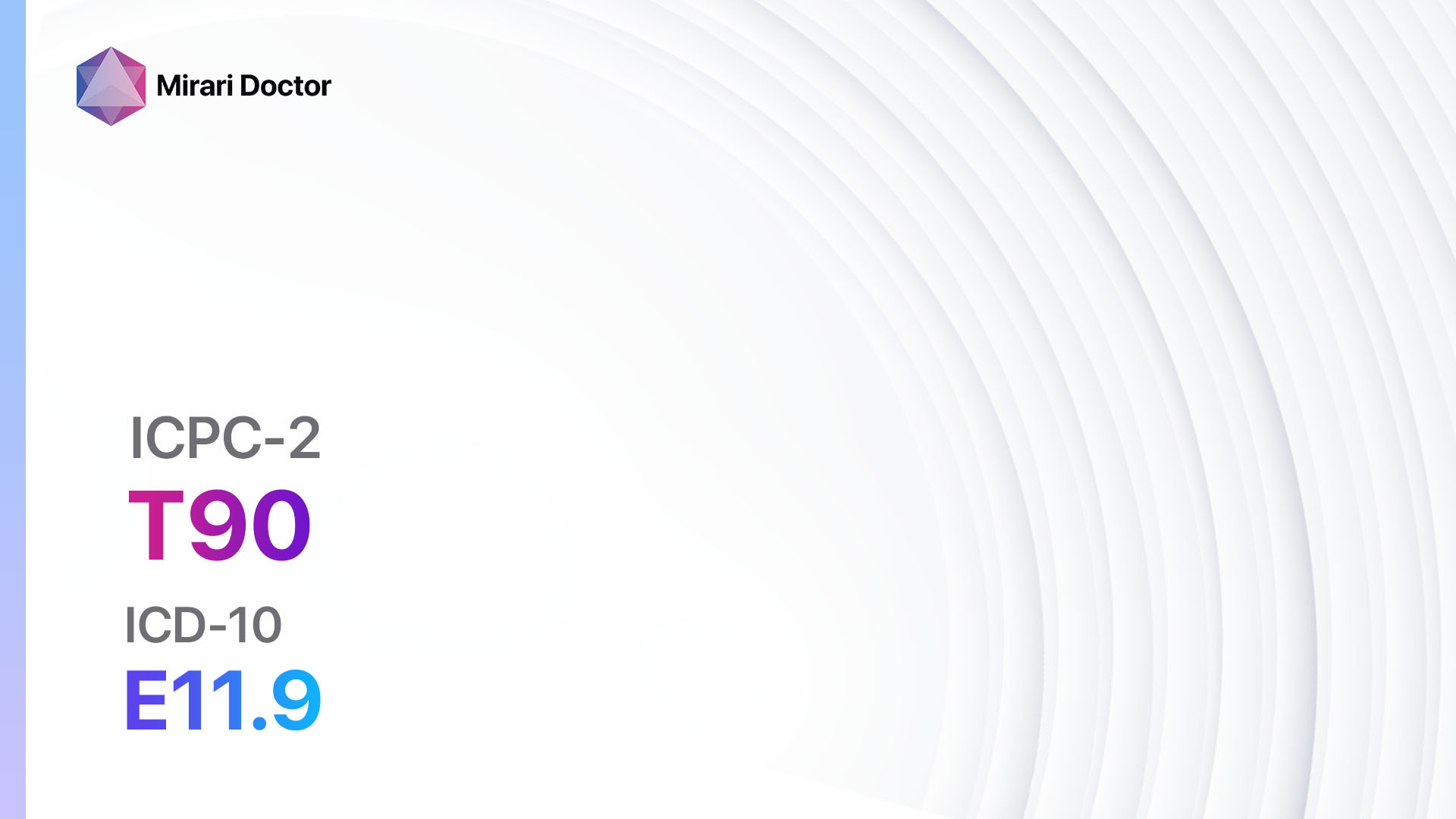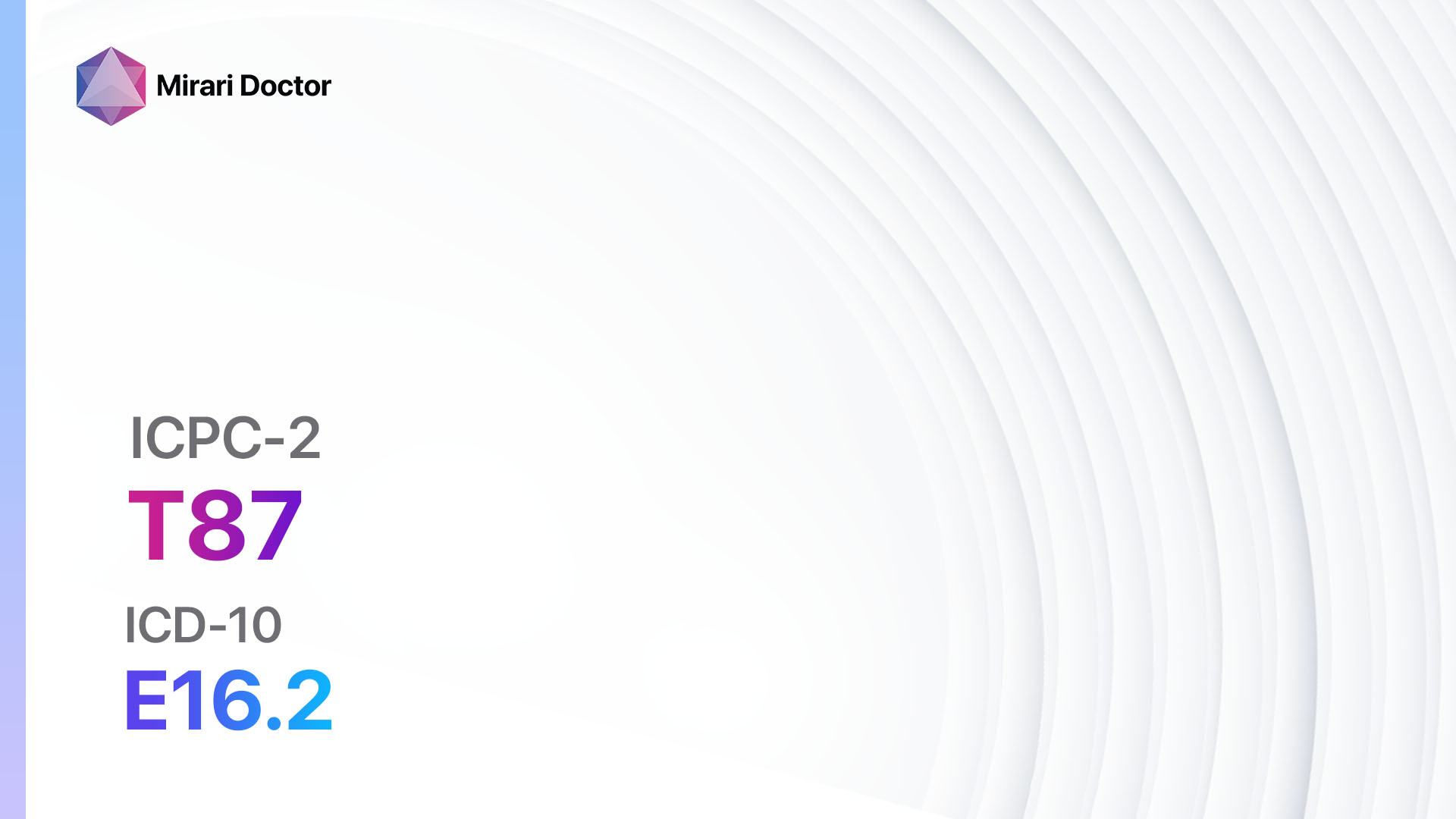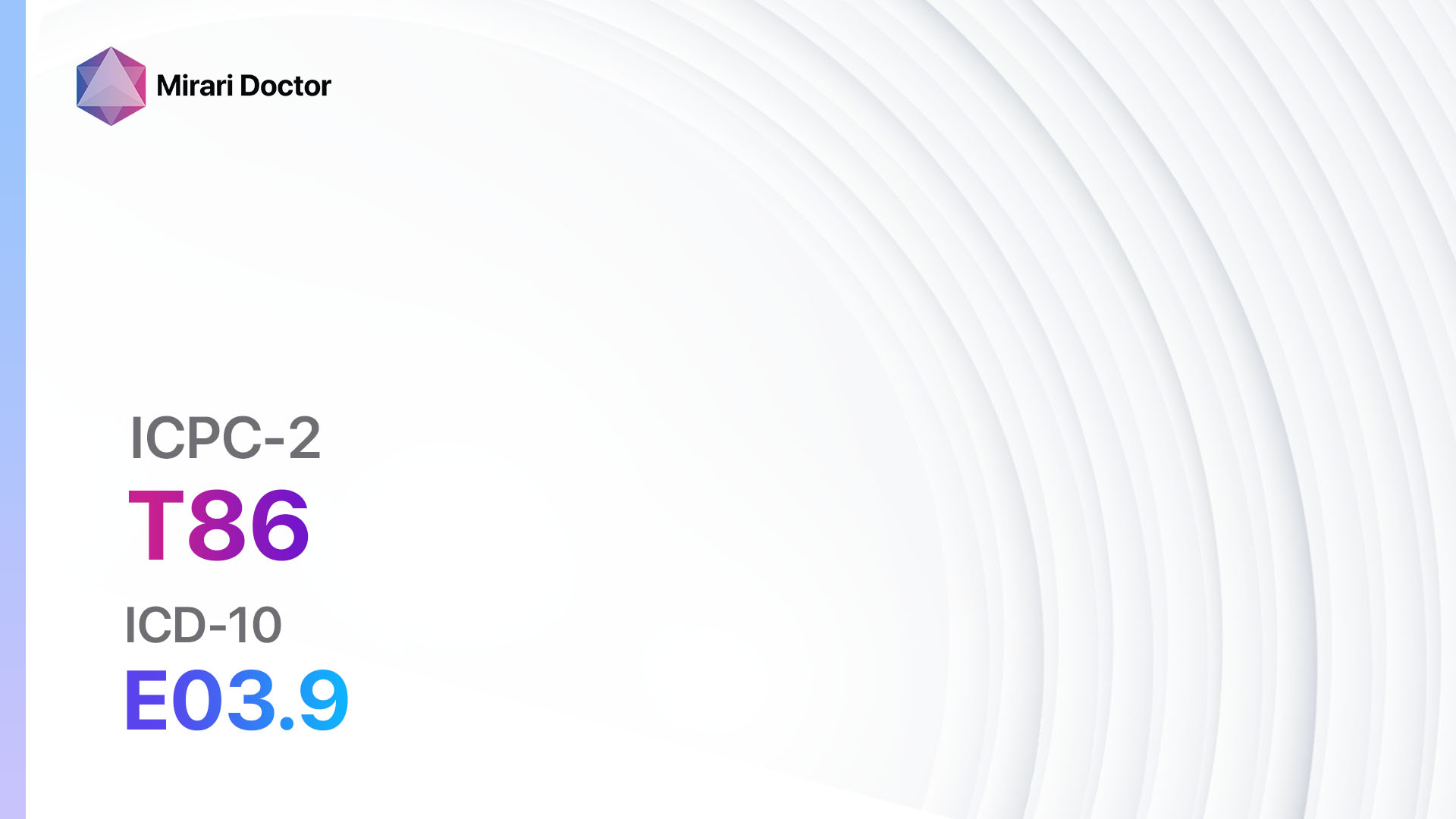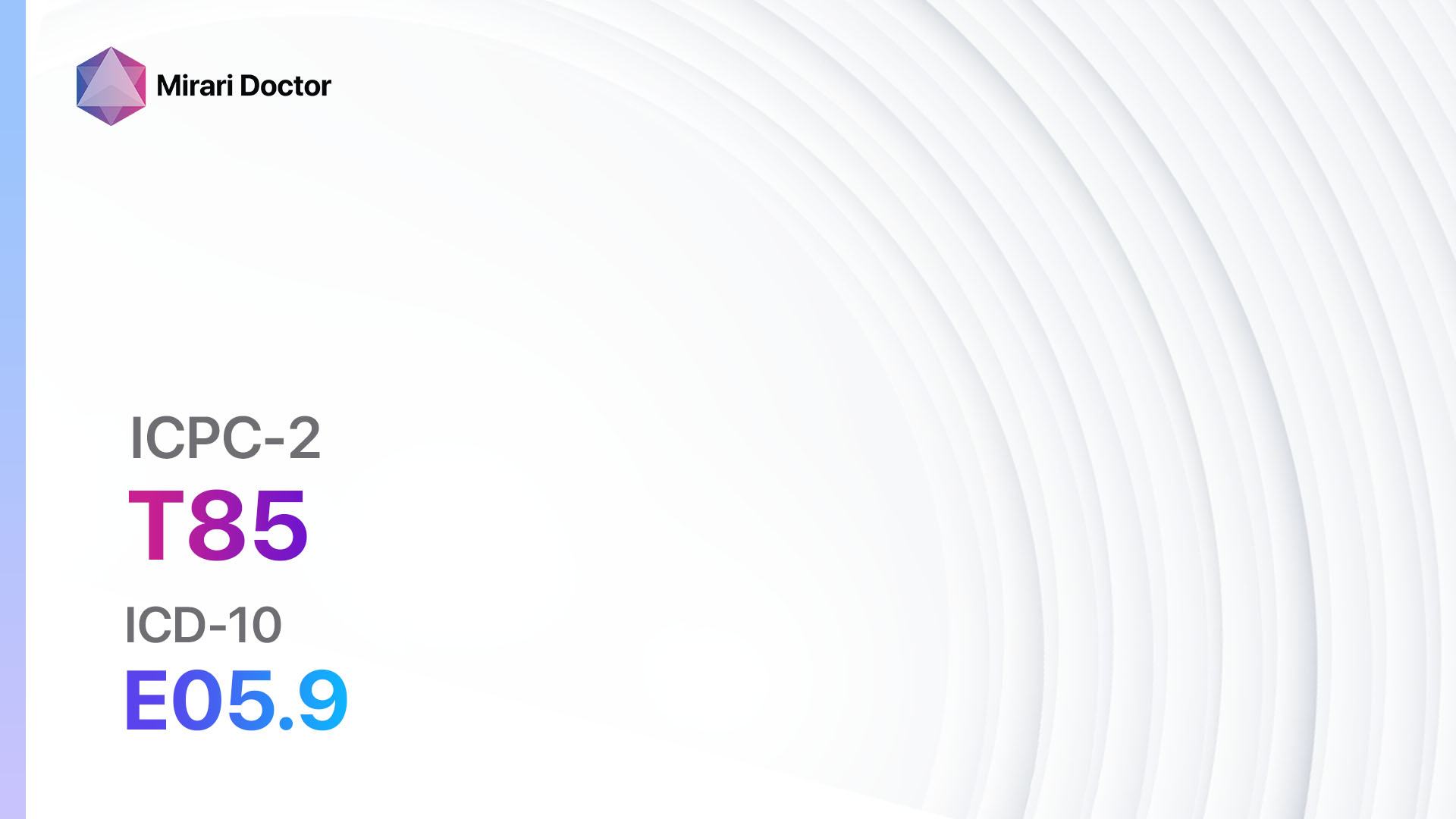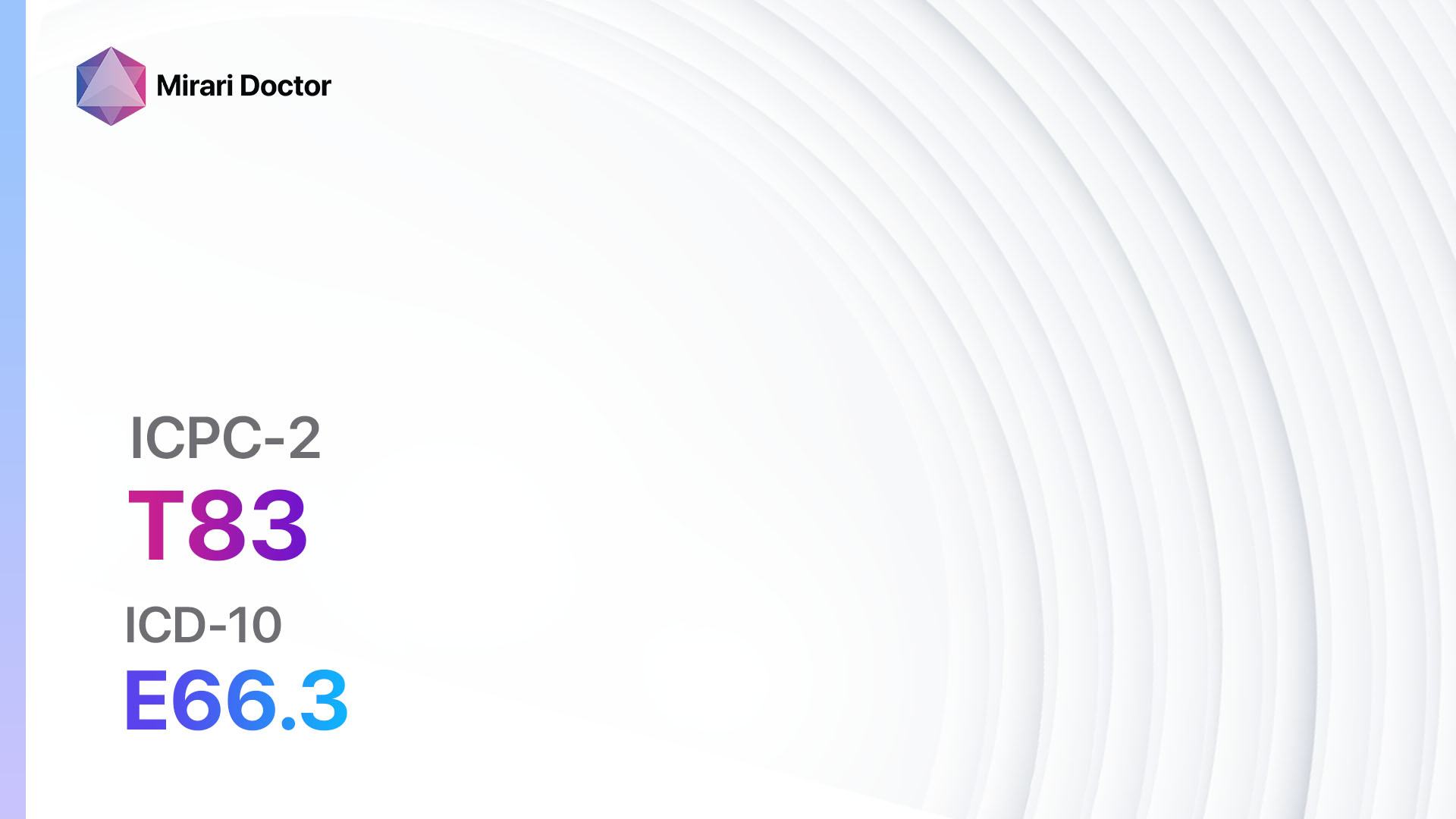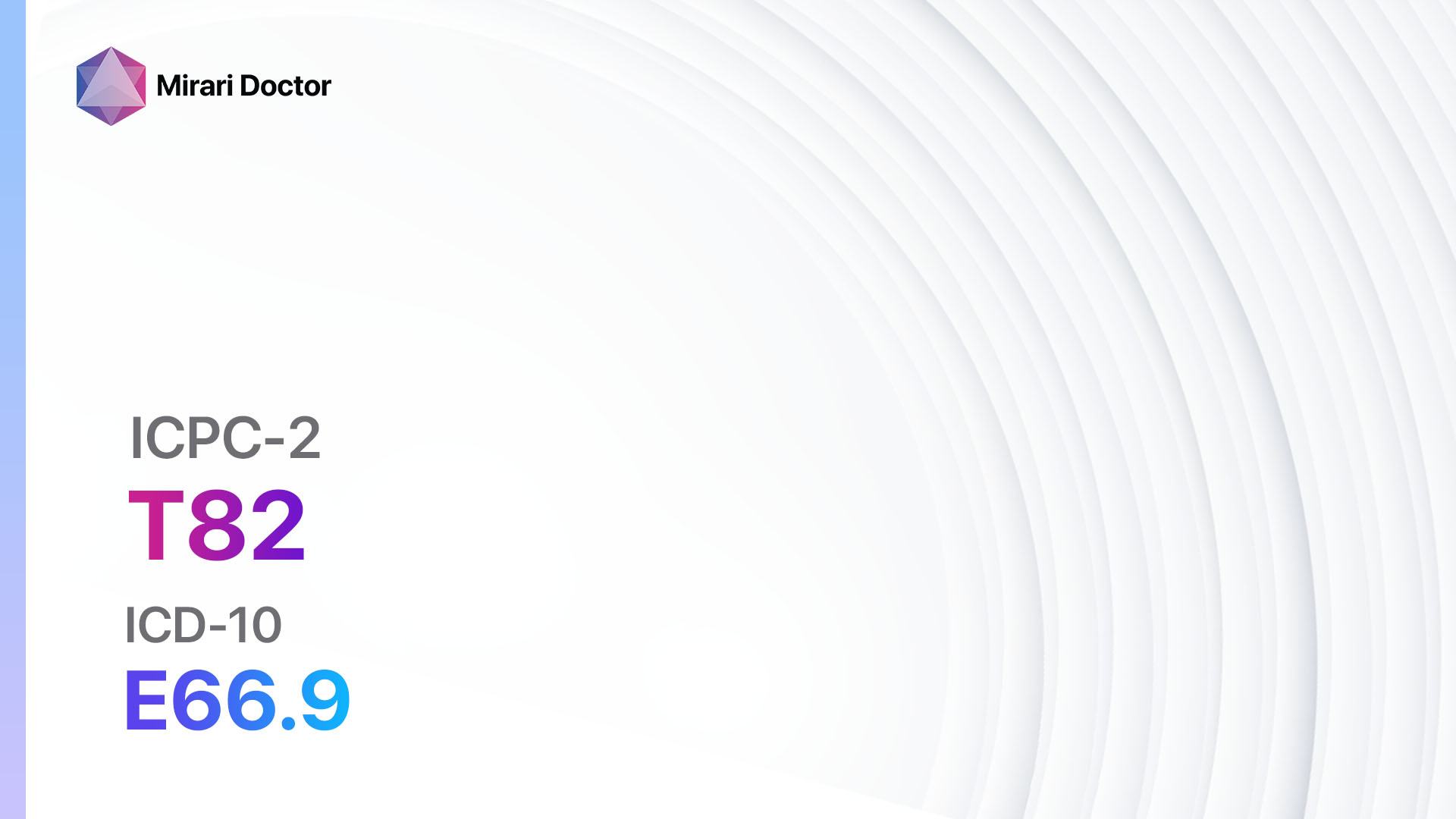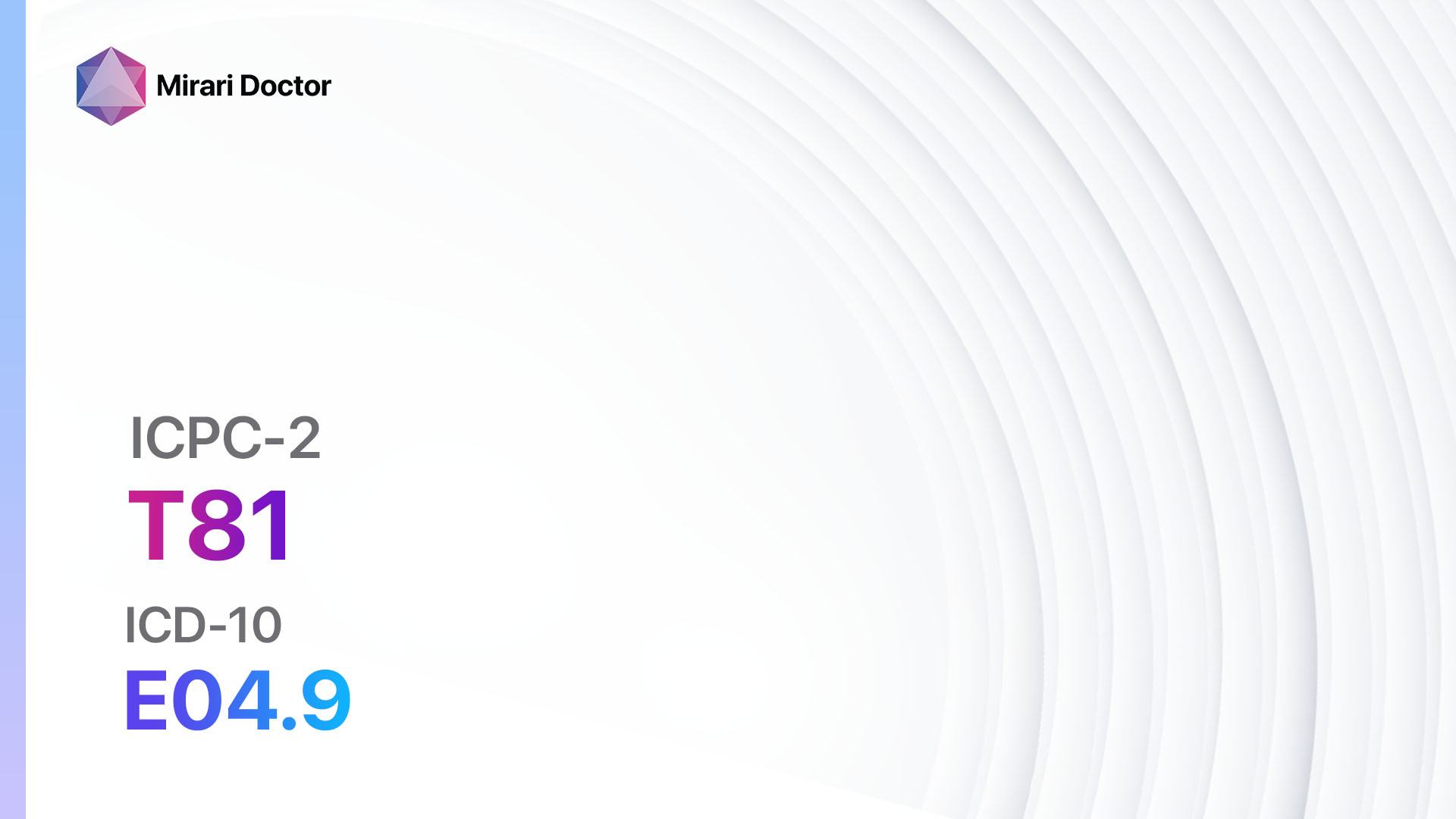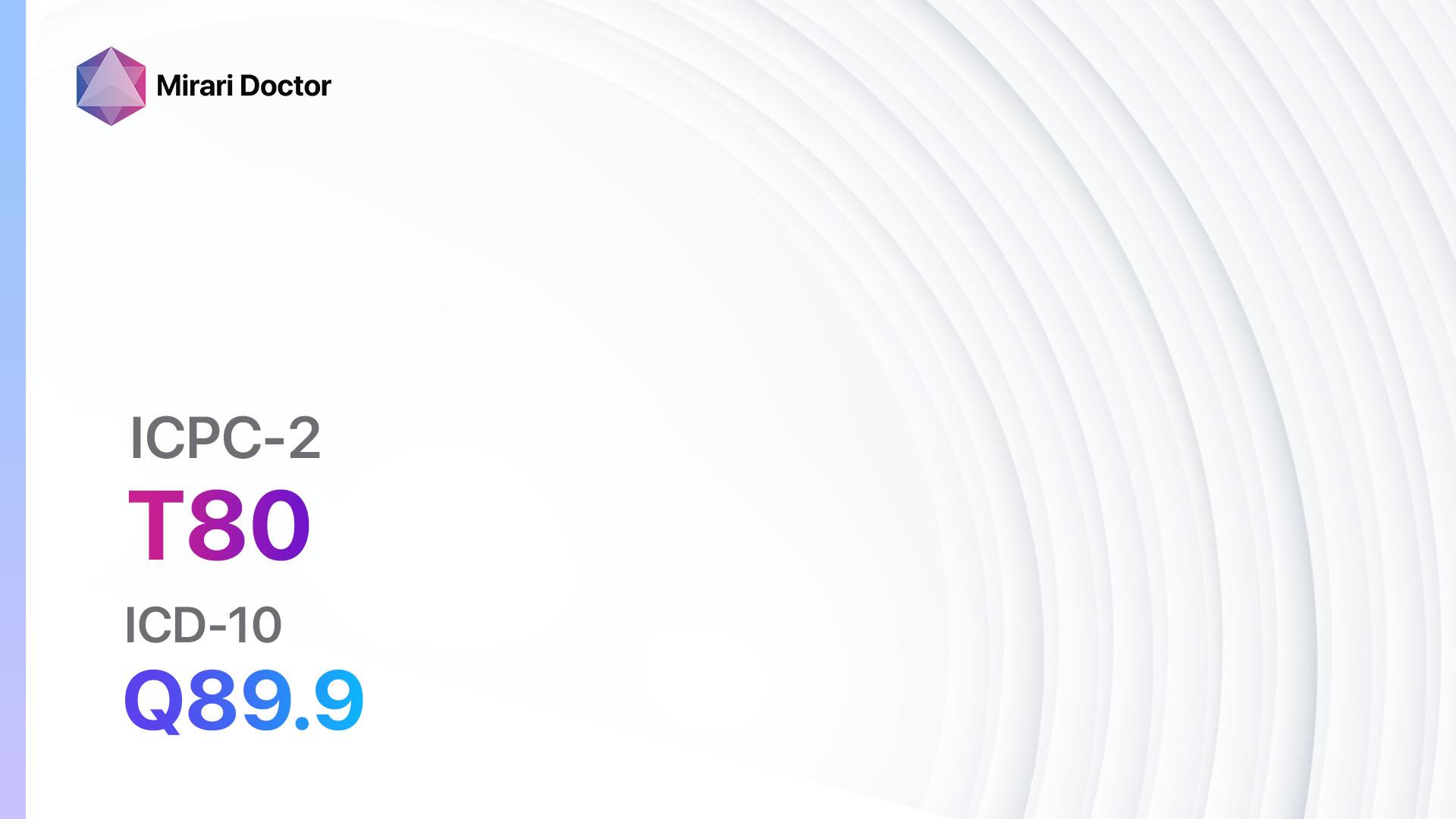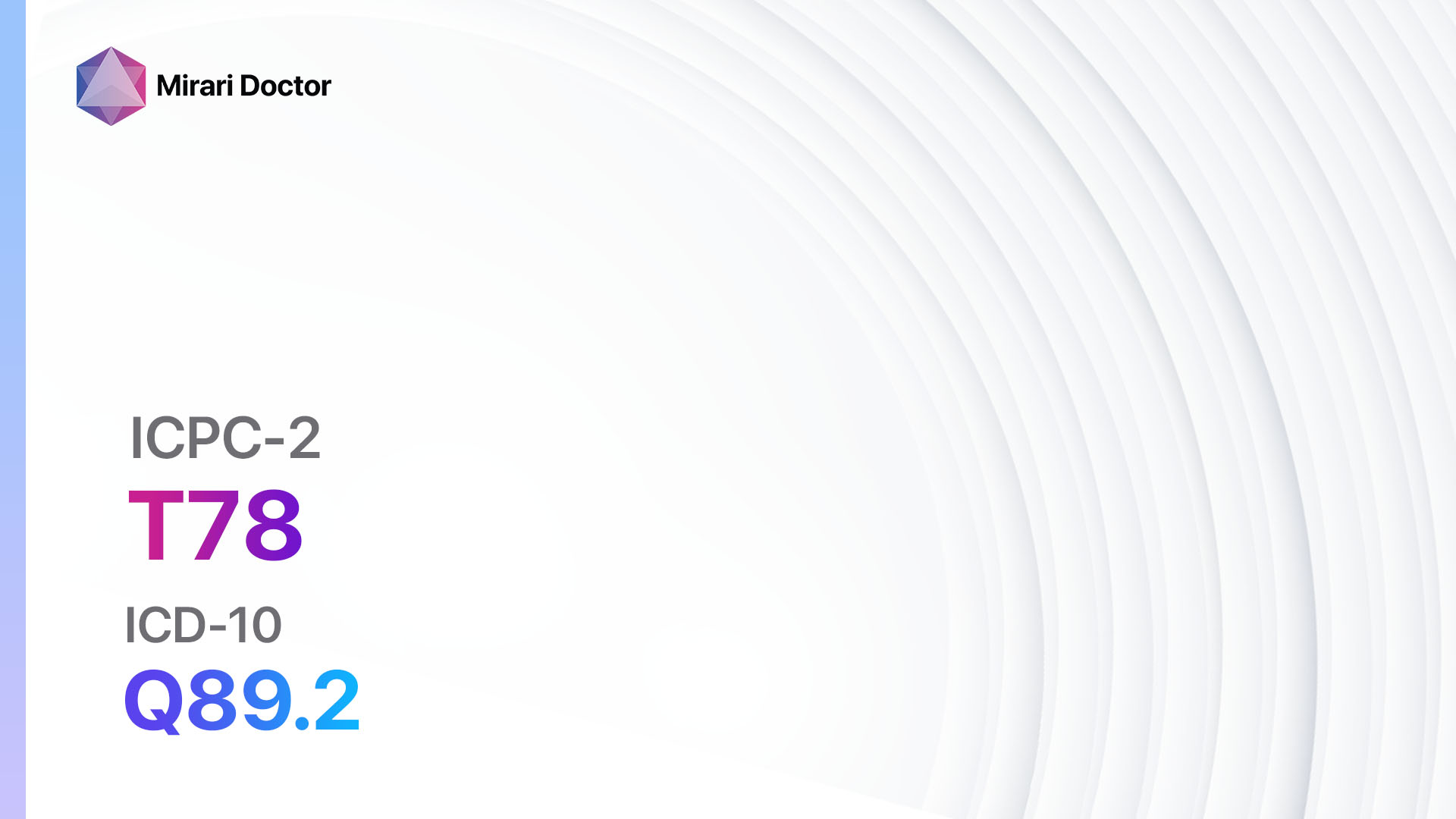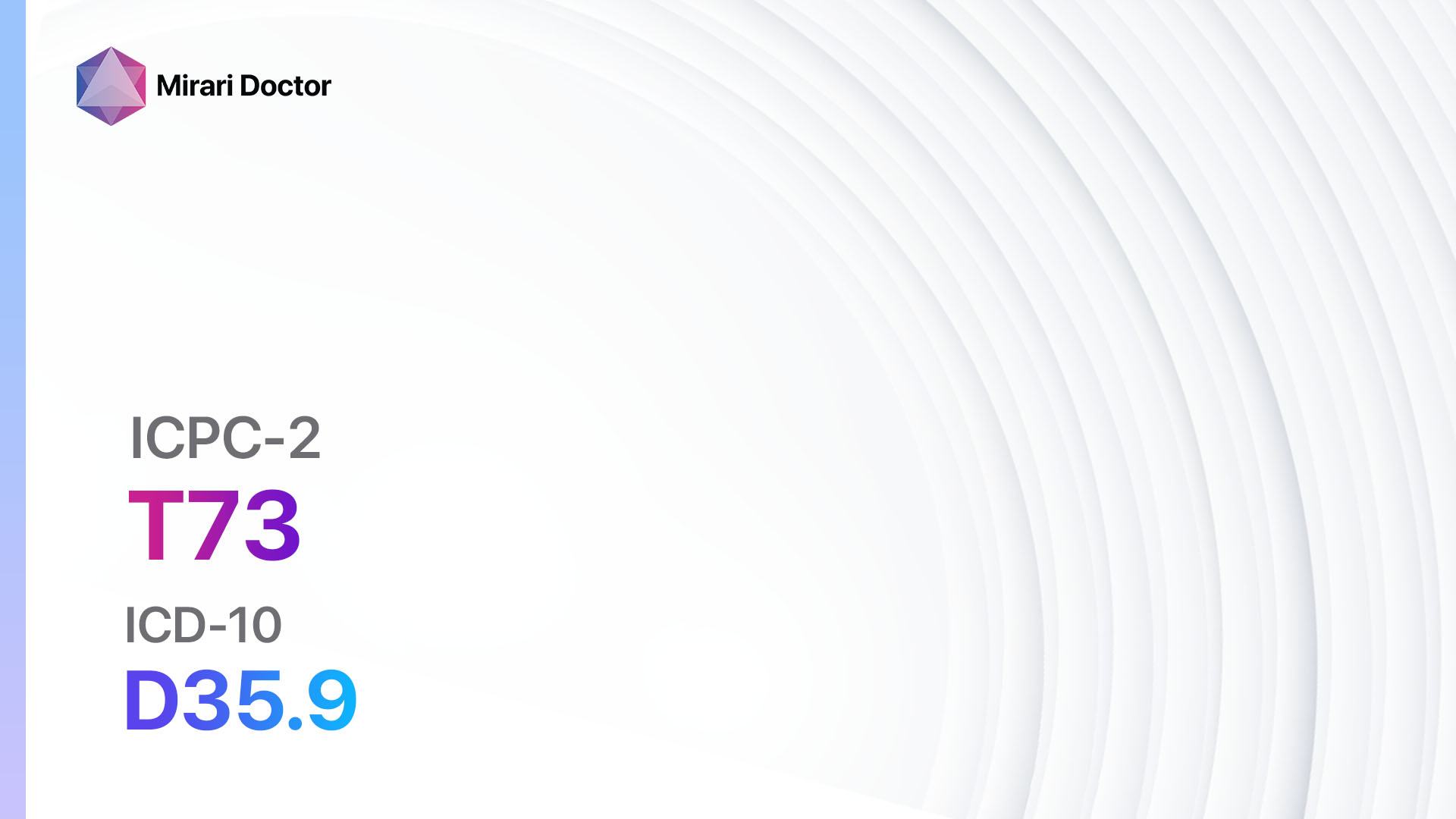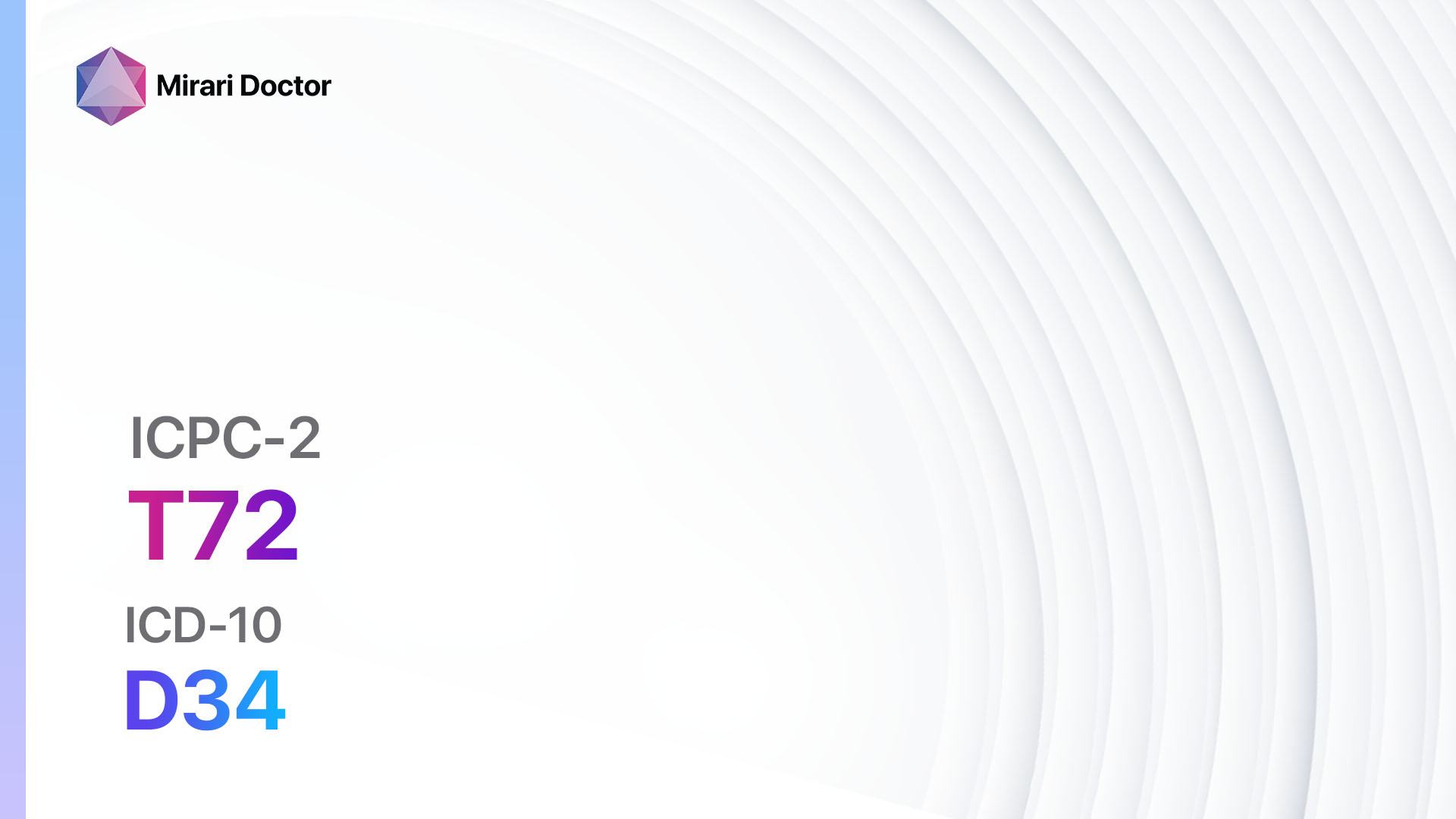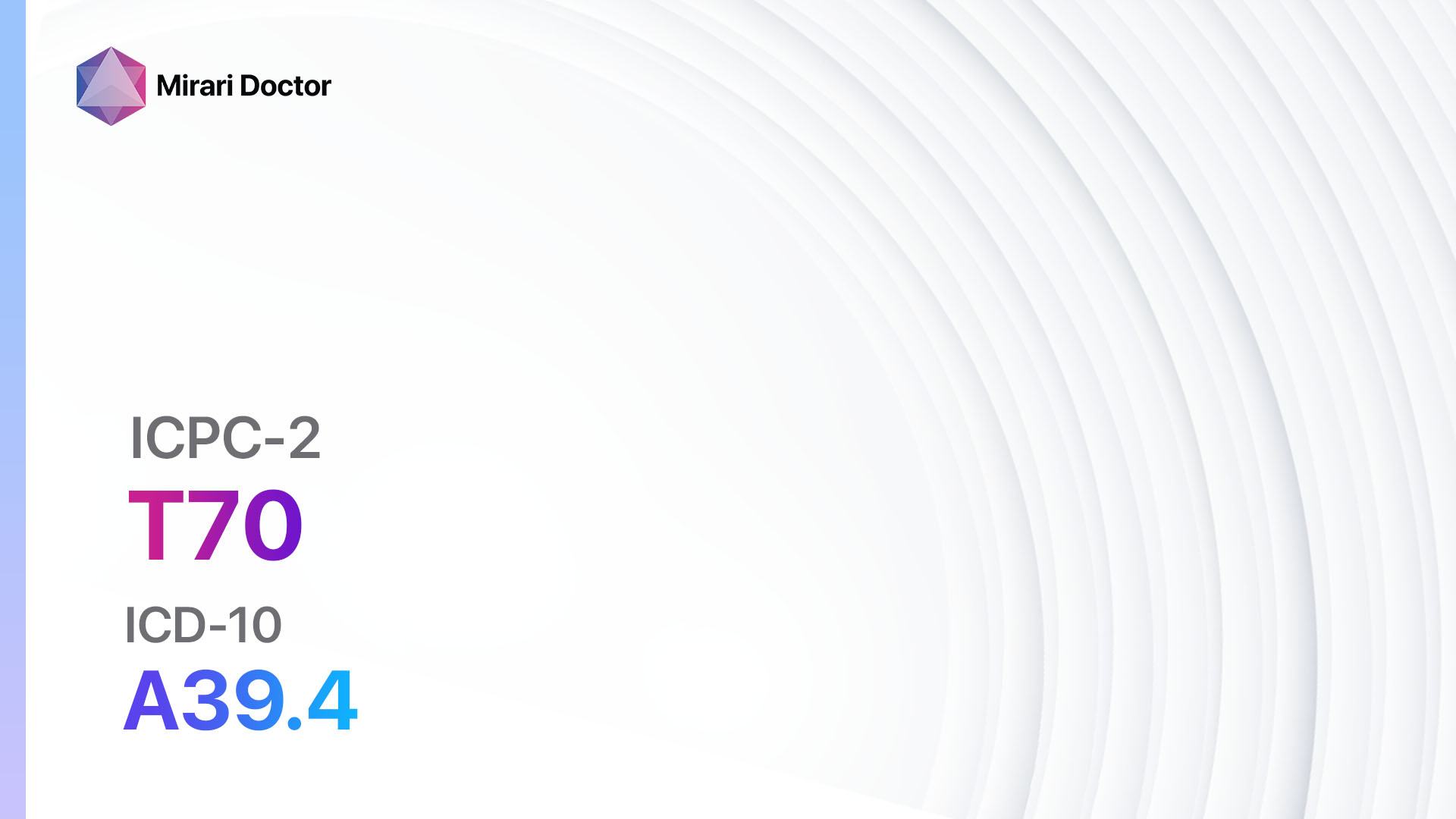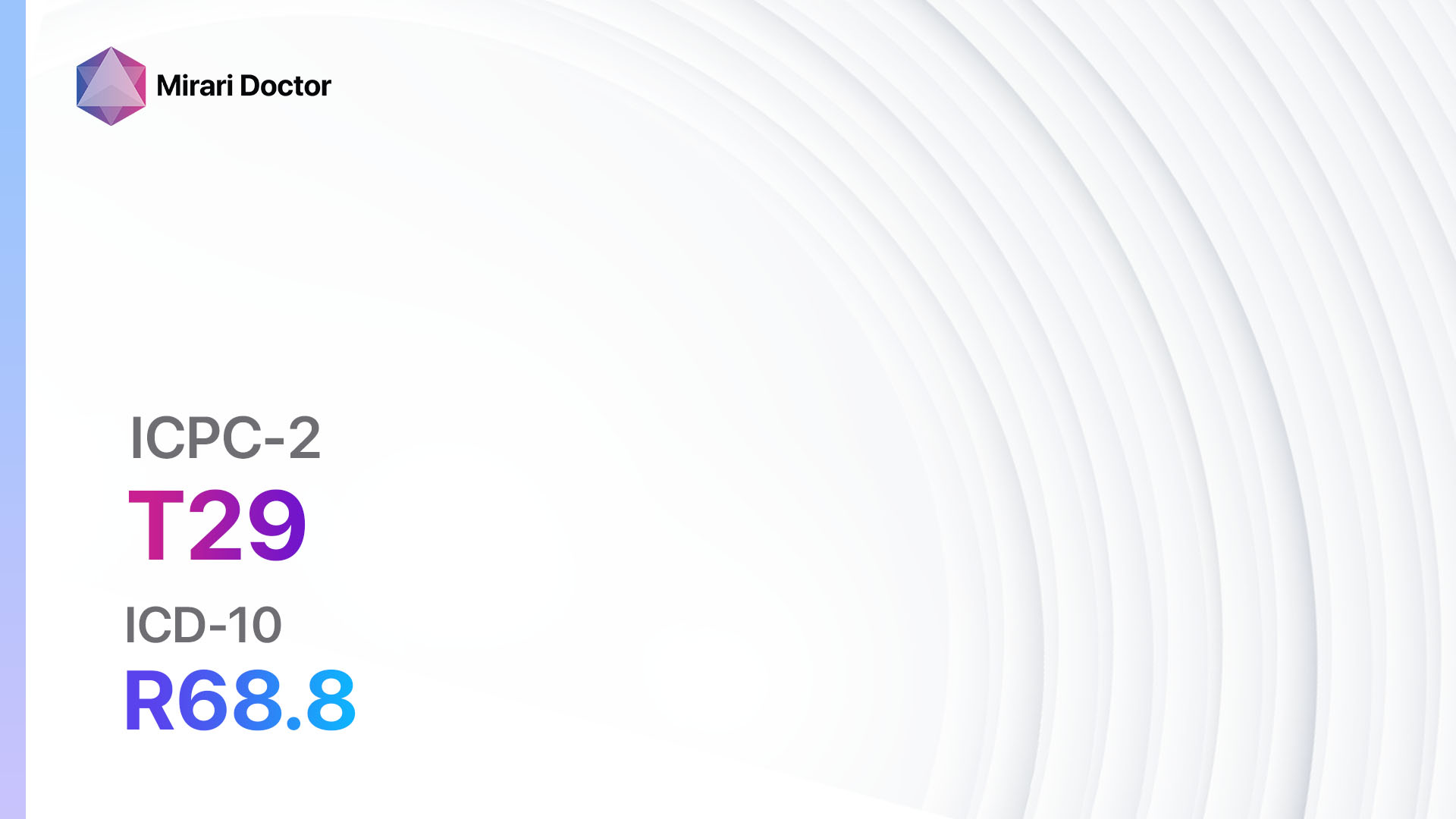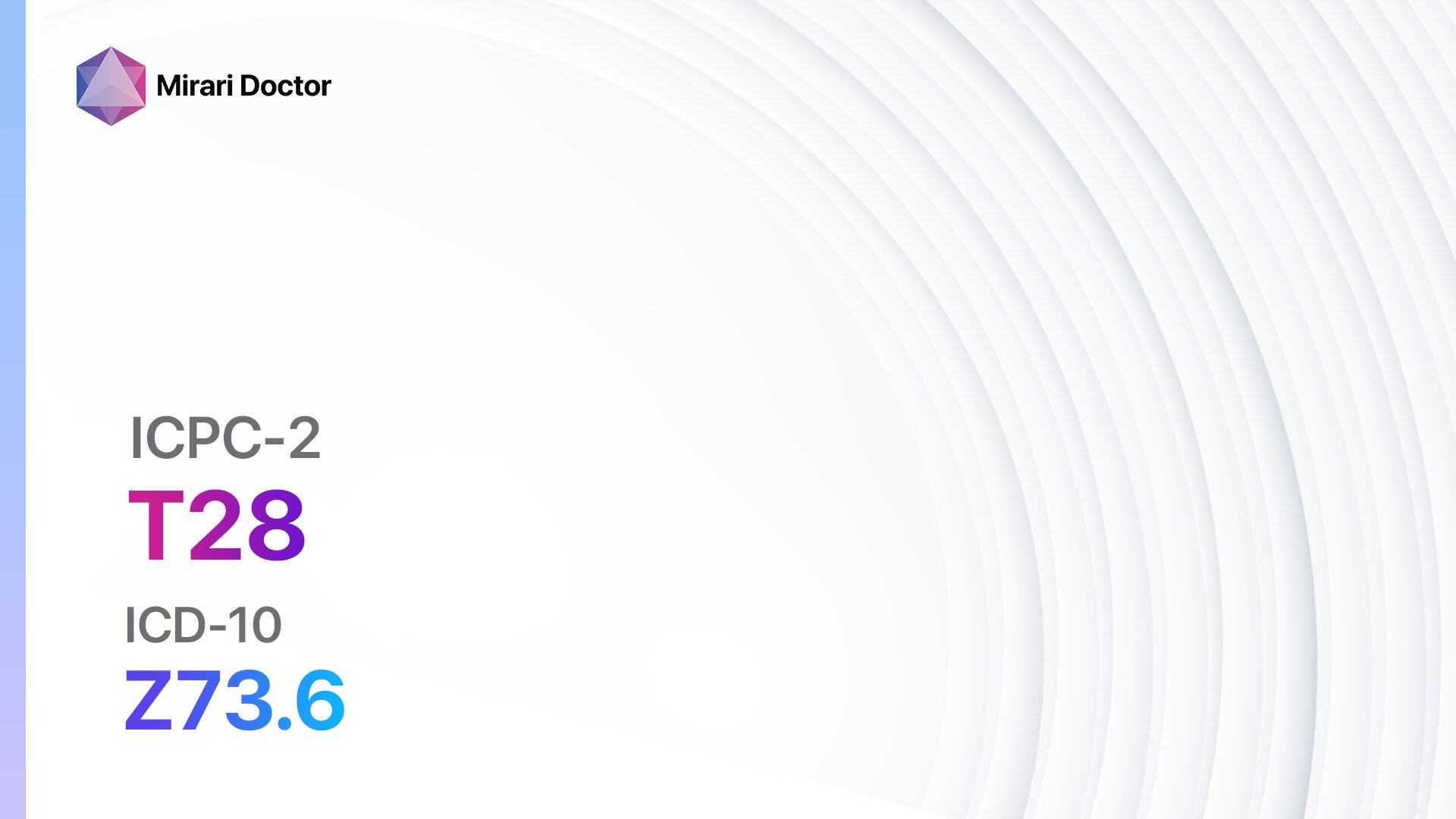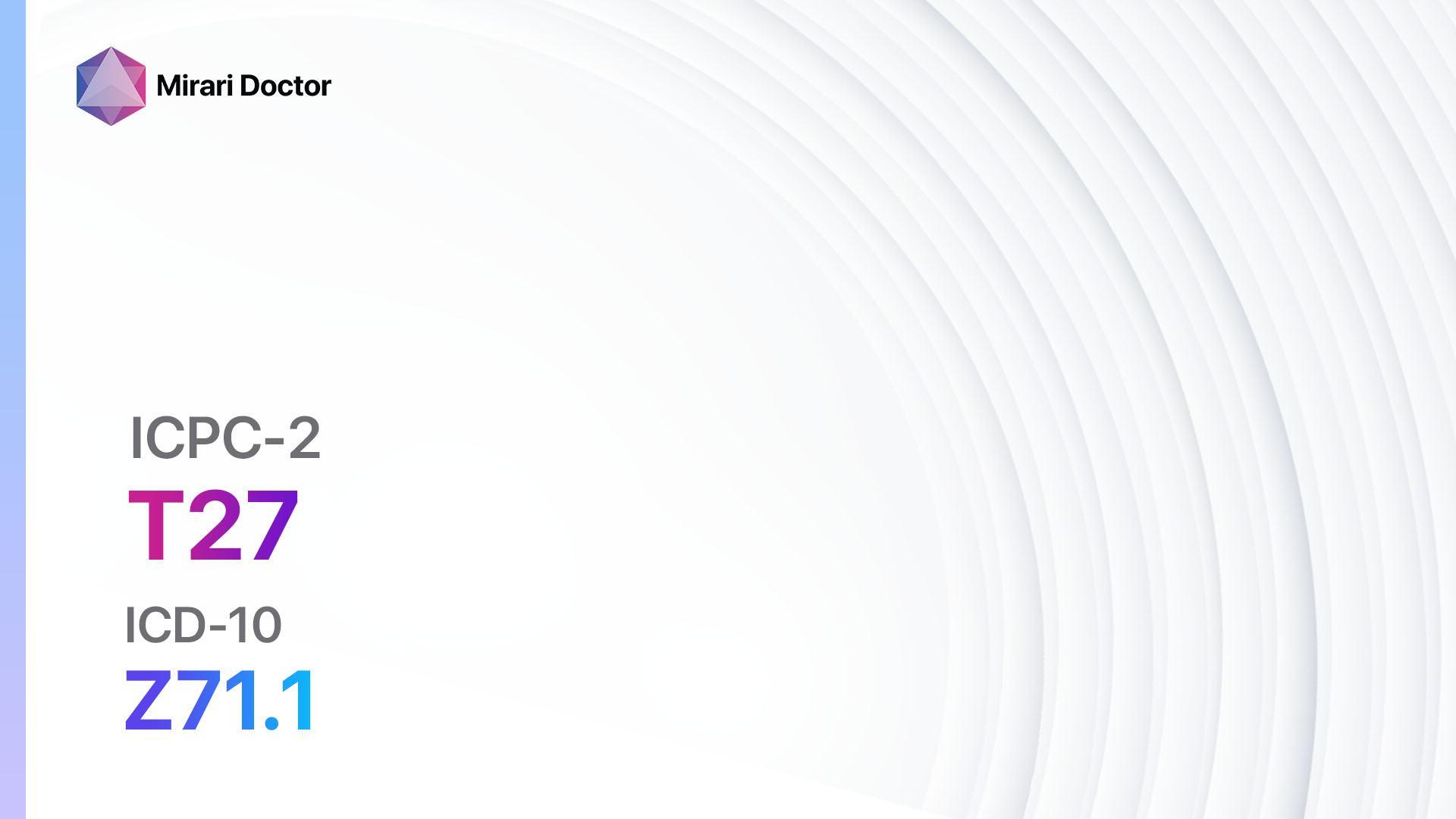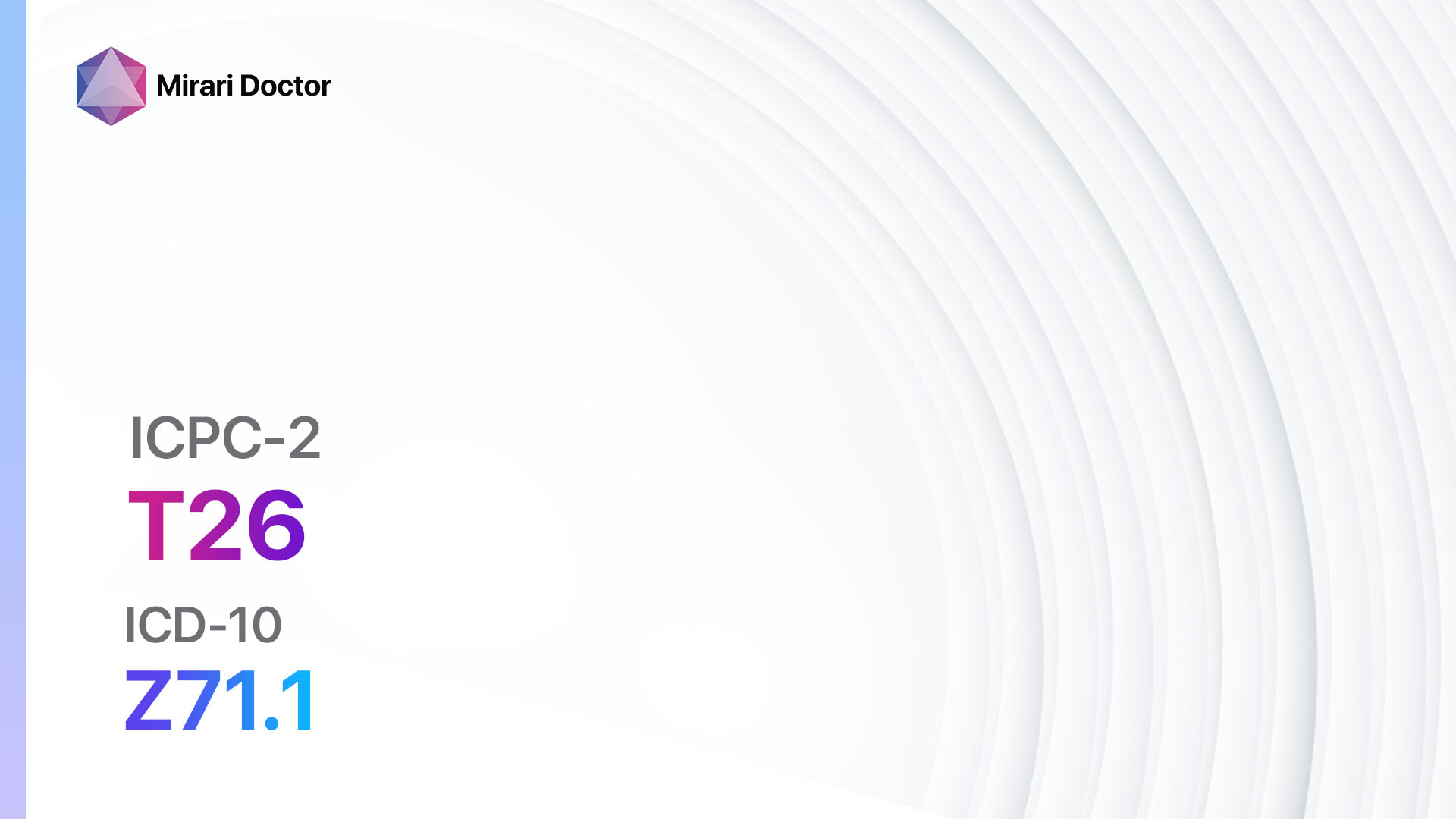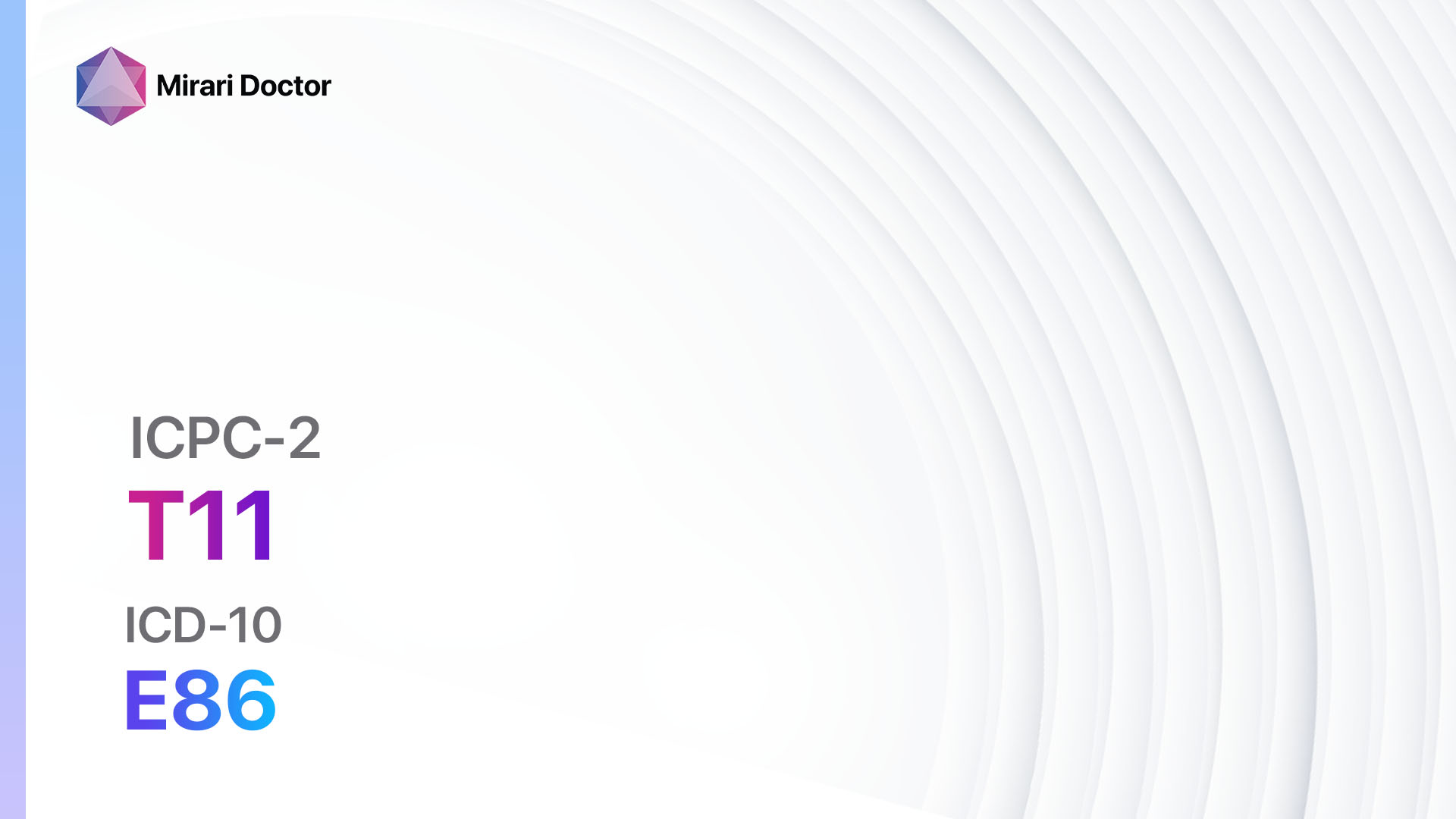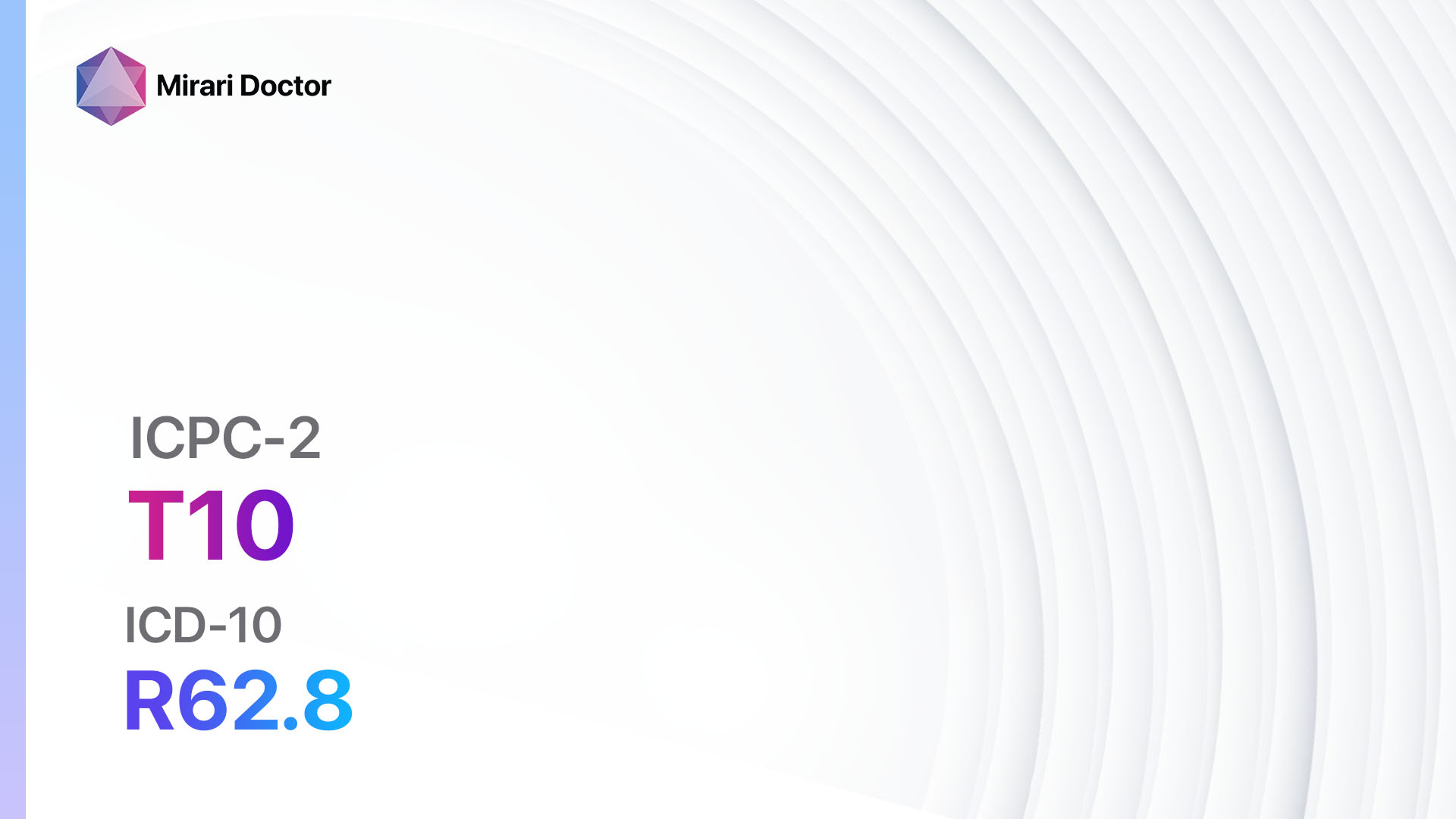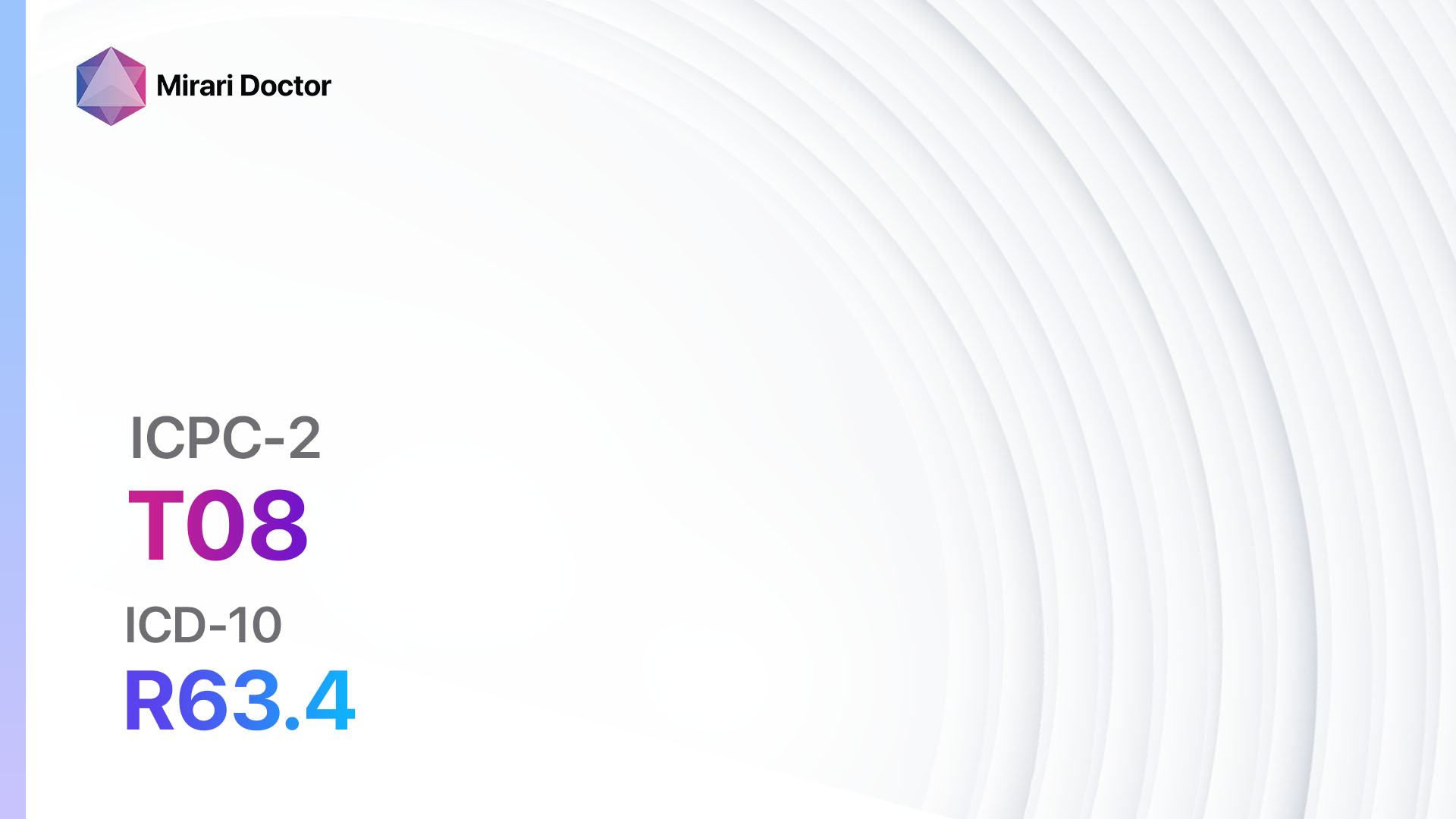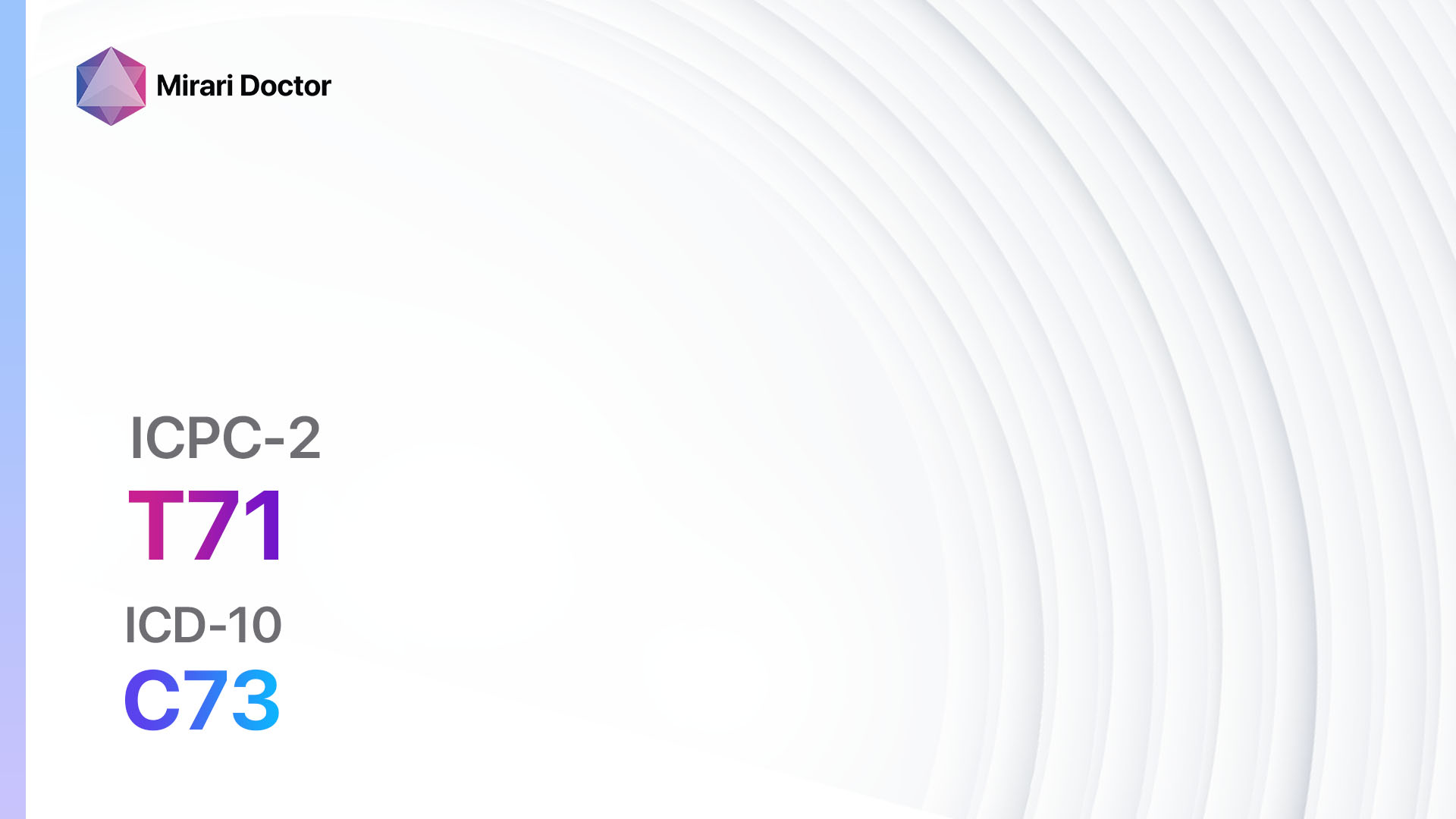
Introduction
Malignant neoplasm of the thyroid, also known as thyroid cancer, is a condition characterized by the abnormal growth of cells in the thyroid gland. It is a significant condition as it can lead to various complications if left untreated. The aim of this guide is to provide a comprehensive overview of the diagnosis and possible interventions for malignant neoplasm thyroid.
Codes
Symptoms
- Lump or swelling in the neck: A noticeable lump or swelling in the neck is one of the most common symptoms of thyroid cancer[1].
- Hoarseness or voice changes: Thyroid cancer can affect the vocal cords, leading to hoarseness or changes in voice[2].
- Difficulty swallowing or breathing: As the tumor grows, it may cause compression of the esophagus or windpipe, resulting in difficulty swallowing or breathing[3].
- Neck pain or discomfort: Some individuals with thyroid cancer may experience pain or discomfort in the neck area[4].
- Enlarged lymph nodes: Cancerous cells may spread to the nearby lymph nodes, causing them to become enlarged[5].
Causes
The exact cause of thyroid cancer is unknown, but certain factors may increase the risk of developing the condition:
- Exposure to radiation, especially during childhood, increases the risk of thyroid cancer[6].
- Family history: Having a family history of thyroid cancer or certain genetic conditions, such as familial medullary thyroid cancer or multiple endocrine neoplasia, can increase the risk[7].
- Gender: Thyroid cancer is more common in females than males[8].
- Age: The risk of thyroid cancer increases with age, with most cases occurring between the ages of 30 and 60[9].
Diagnostic Steps
Medical History
- Gather information about the patient’s risk factors, such as exposure to radiation or family history of thyroid cancer.
- Inquire about any symptoms related to thyroid cancer, including neck lumps, voice changes, difficulty swallowing or breathing, neck pain, or enlarged lymph nodes.
- Assess the patient’s medical history, including any previous thyroid conditions or treatments.
Physical Examination
- Perform a thorough physical examination of the neck to assess for any lumps, swelling, or enlarged lymph nodes.
- Check for any signs of compression of the esophagus or windpipe, such as difficulty swallowing or breathing.
Laboratory Tests
- Thyroid-stimulating hormone (TSH) blood test: This test measures the levels of TSH, a hormone that regulates the thyroid gland. Abnormal levels may indicate thyroid dysfunction[10].
- Thyroid hormone levels (T3 and T4): These tests measure the levels of thyroid hormones in the blood. Abnormal levels may suggest thyroid cancer.
- Thyroglobulin blood test: Thyroglobulin is a protein produced by the thyroid gland. Elevated levels may indicate thyroid cancer.
- Calcitonin blood test: Calcitonin is a hormone produced by certain cells in the thyroid gland. Elevated levels may indicate medullary thyroid cancer.
Diagnostic Imaging
- Ultrasound: An ultrasound of the neck can help visualize the thyroid gland and any abnormalities, such as nodules or tumors.
- Fine-needle aspiration (FNA) biopsy: This procedure involves using a thin needle to extract cells from a thyroid nodule or tumor for examination under a microscope.
- Radioiodine scan: This imaging test involves the administration of a small amount of radioactive iodine, which is taken up by the thyroid gland. It can help determine the extent of thyroid cancer and if it has spread to other parts of the body.
- CT scan or MRI: These imaging modalities may be used to assess the extent of thyroid cancer and detect any spread to nearby structures or lymph nodes.
Other Tests
- Genetic testing: In individuals with a family history of thyroid cancer or certain genetic conditions, genetic testing may be recommended to identify specific gene mutations associated with thyroid cancer.
- Positron emission tomography (PET) scan: This imaging test may be used to detect any distant metastases or spread of thyroid cancer to other parts of the body.
Follow-up and Patient Education
- Schedule regular follow-up appointments to monitor the patient’s condition and response to treatment.
- Provide education on the importance of adherence to treatment, potential side effects, and self-examination of the neck for any changes or recurrence of symptoms.
- Offer emotional support and resources for patients and their families to cope with the diagnosis and treatment of thyroid cancer.
Possible Interventions
Traditional Interventions
Medications:
Top 5 drugs for Malignant neoplasm thyroid:
- Levothyroxine:
- Cost: $10-$50/month.
- Contraindications: Hypersensitivity to levothyroxine, acute myocardial infarction, uncorrected adrenal insufficiency.
- Side effects: Hair loss, weight changes, insomnia.
- Severe side effects: Chest pain, rapid or irregular heartbeat, allergic reactions.
- Drug interactions: Antacids, calcium supplements, iron supplements.
- Warning: Regular monitoring of thyroid function is required.
- Radioactive iodine:
- Cost: $1,000-$5,000 per treatment.
- Contraindications: Pregnancy, breastfeeding, severe thyroid eye disease.
- Side effects: Nausea, dry mouth, taste changes.
- Severe side effects: Radiation sickness, bone marrow suppression.
- Drug interactions: Antithyroid medications, iodine-containing supplements.
- Warning: Strict radiation safety precautions must be followed.
- Tyrosine kinase inhibitors (e.g., Sorafenib, Lenvatinib):
- Cost: $10,000-$15,000 per month.
- Contraindications: Hypersensitivity to tyrosine kinase inhibitors, severe hepatic impairment.
- Side effects: Fatigue, diarrhea, hypertension.
- Severe side effects: Cardiac toxicity, hepatotoxicity.
- Drug interactions: CYP3A4 inhibitors, CYP3A4 inducers.
- Warning: Regular monitoring of liver function and blood pressure is required.
- Chemotherapy (e.g., Doxorubicin, Paclitaxel):
- Cost: $1,000-$5,000 per cycle.
- Contraindications: Severe bone marrow suppression, severe hepatic impairment.
- Side effects: Nausea, vomiting, hair loss.
- Severe side effects: Cardiotoxicity, myelosuppression.
- Drug interactions: CYP3A4 inhibitors, CYP3A4 inducers.
- Warning: Regular monitoring of blood counts and cardiac function is required.
- Immunotherapy (e.g., Pembrolizumab):
- Cost: $10,000-$15,000 per month.
- Contraindications: Hypersensitivity to pembrolizumab, active autoimmune disease.
- Side effects: Fatigue, rash, diarrhea.
- Severe side effects: Immune-mediated pneumonitis, colitis.
- Drug interactions: None reported.
- Warning: Regular monitoring of immune-related adverse events is required.
Alternative Drugs:
- Sunitinib: A tyrosine kinase inhibitor used as an alternative to sorafenib or lenvatinib.
- Mitotane: A medication used for advanced thyroid cancer that is not responsive to other treatments.
- Everolimus: An mTOR inhibitor used for advanced thyroid cancer.
- Vandetanib: A tyrosine kinase inhibitor used for advanced medullary thyroid cancer.
- Cabozantinib: A tyrosine kinase inhibitor used for advanced medullary thyroid cancer.
Surgical Procedures:
- Total thyroidectomy: Surgical removal of the entire thyroid gland. Cost: $10,000-$20,000.
- Lymph node dissection: Surgical removal of affected lymph nodes in the neck. Cost: $5,000-$10,000.
- Tracheostomy: Creation of an opening in the windpipe to bypass a blocked airway. Cost: $10,000-$20,000.
- External beam radiation therapy: The use of high-energy beams to kill cancer cells. Cost: $10,000-$50,000.
- Chemotherapy infusion: Administration of chemotherapy drugs through an intravenous line. Cost: $1,000-$5,000 per cycle.
Alternative Interventions
- Acupuncture: May help alleviate symptoms and improve overall well-being. Cost: $60-$120 per session.
- Herbal supplements: Some herbs, such as ashwagandha and turmeric, may have potential benefits for supporting thyroid health. Cost: Varies depending on the specific supplement.
- Mind-body techniques (e.g., meditation, yoga): Can help reduce stress and improve quality of life. Cost: Varies depending on the specific program or class.
- Dietary modifications: A balanced diet rich in fruits, vegetables, and lean proteins can support overall health. Cost: Varies depending on individual food choices.
- Massage therapy: May help reduce muscle tension and promote relaxation. Cost: $60-$120 per session.
Lifestyle Interventions
- Regular exercise: Engaging in regular physical activity can help improve overall health and well-being. Cost: Varies depending on individual preferences (e.g., gym membership, home workout equipment).
- Stress management techniques: Practicing stress management techniques, such as deep breathing exercises or mindfulness meditation, can help reduce stress levels. Cost: Varies depending on the specific technique or program.
- Smoking cessation: Quitting smoking is essential for overall health and can improve treatment outcomes. Cost: Varies depending on individual methods used for smoking cessation.
- Healthy diet: Adopting a healthy diet rich in fruits, vegetables, whole grains, and lean proteins can support overall health. Cost: Varies depending on individual food choices.
- Adequate sleep: Getting enough sleep is crucial for overall health and well-being. Cost: Varies depending on individual sleep habits and preferences.
It is important to note that the cost ranges provided are approximate and may vary depending on the location and availability of the interventions.
Mirari Cold Plasma Alternative Intervention
Understanding Mirari Cold Plasma
- Safe and Non-Invasive Treatment: Mirari Cold Plasma is a safe and non-invasive treatment option for various skin conditions. It does not require incisions, minimizing the risk of scarring, bleeding, or tissue damage.
- Efficient Extraction of Foreign Bodies: Mirari Cold Plasma facilitates the removal of foreign bodies from the skin by degrading and dissociating organic matter, allowing easier access and extraction.
- Pain Reduction and Comfort: Mirari Cold Plasma has a local analgesic effect, providing pain relief during the treatment, making it more comfortable for the patient.
- Reduced Risk of Infection: Mirari Cold Plasma has antimicrobial properties, effectively killing bacteria and reducing the risk of infection.
- Accelerated Healing and Minimal Scarring: Mirari Cold Plasma stimulates wound healing and tissue regeneration, reducing healing time and minimizing the formation of scars.
Mirari Cold Plasma Prescription
Video instructions for using Mirari Cold Plasma Device – T71 Malignant neoplasm thyroid (ICD-10:C73)
| Mild | Moderate | Severe |
| Mode setting: 1 (Infection) Location: 6 (Throat, Lymphatic & Thyroid) Morning: 15 minutes, Evening: 15 minutes |
Mode setting: 1 (Infection) Location: 6 (Throat, Lymphatic & Thyroid) Morning: 30 minutes, Lunch: 30 minutes, Evening: 30 minutes |
Mode setting: 1 (Infection) Location: 6 (Throat, Lymphatic & Thyroid) Morning: 30 minutes, Lunch: 30 minutes, Evening: 30 minutes |
| Mode setting: 2 (Wound Healing) Location: 6 (Throat, Lymphatic & Thyroid) Morning: 15 minutes, Evening: 15 minutes |
Mode setting: 2 (Wound Healing) Location: 6 (Throat, Lymphatic & Thyroid) Morning: 30 minutes, Lunch: 30 minutes, Evening: 30 minutes |
Mode setting: 2 (Wound Healing) Location: 6 (Throat, Lymphatic & Thyroid) Morning: 30 minutes, Lunch: 30 minutes, Evening: 30 minutes |
| Mode setting: 7 (Immunotherapy) Location: 6 (Throat, Lymphatic & Thyroid) Morning: 15 minutes, Evening: 15 minutes |
Mode setting: 7 (Immunotherapy) Location: 6 (Throat, Lymphatic & Thyroid) Morning: 30 minutes, Lunch: 30 minutes, Evening: 30 minutes |
Mode setting: 7 (Immunotherapy) Location: 6 (Throat, Lymphatic & Thyroid) Morning: 30 minutes, Lunch: 30 minutes, Evening: 30 minutes |
| Mode setting: 7 (Immunotherapy) Location: 1 (Sacrum) Morning: 15 minutes, Evening: 15 minutes |
Mode setting: 7 (Immunotherapy) Location: 1 (Sacrum) Morning: 30 minutes, Lunch: 30 minutes, Evening: 30 minutes |
Mode setting: 7 (Immunotherapy) Location: 1 (Sacrum) Morning: 30 minutes, Lunch: 30 minutes, Evening: 30 minutes |
| Total Morning: 60 minutes approx. $10 USD, Evening: 60 minutes approx. $10 USD |
Total Morning: 120 minutes approx. $20 USD, Lunch: 120 minutes approx. $20 USD, Evening: 120 minutes approx. $20 USD, |
Total Morning: 120 minutes approx. $20 USD, Lunch: 120 minutes approx. $20 USD, Evening: 120 minutes approx. $20 USD, |
| Usual treatment for 7-60 days approx. $140 USD – $1200 USD | Usual treatment for 6-8 weeks approx. $2,520 USD – $3,360 USD |
Usual treatment for 3-6 months approx. $5,400 USD – $10,800 USD
|
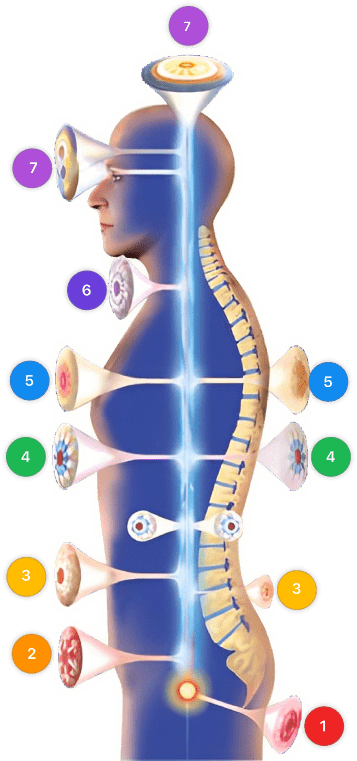 |
|
Use the Mirari Cold Plasma device to treat Malignant neoplasm thyroid effectively.
WARNING: MIRARI COLD PLASMA IS DESIGNED FOR THE HUMAN BODY WITHOUT ANY ARTIFICIAL OR THIRD PARTY PRODUCTS. USE OF OTHER PRODUCTS IN COMBINATION WITH MIRARI COLD PLASMA MAY CAUSE UNPREDICTABLE EFFECTS, HARM OR INJURY. PLEASE CONSULT A MEDICAL PROFESSIONAL BEFORE COMBINING ANY OTHER PRODUCTS WITH USE OF MIRARI.
Step 1: Cleanse the Skin
- Start by cleaning the affected area of the skin with a gentle cleanser or mild soap and water. Gently pat the area dry with a clean towel.
Step 2: Prepare the Mirari Cold Plasma device
- Ensure that the Mirari Cold Plasma device is fully charged or has fresh batteries as per the manufacturer’s instructions. Make sure the device is clean and in good working condition.
- Switch on the Mirari device using the power button or by following the specific instructions provided with the device.
- Some Mirari devices may have adjustable settings for intensity or treatment duration. Follow the manufacturer’s instructions to select the appropriate settings based on your needs and the recommended guidelines.
Step 3: Apply the Device
- Place the Mirari device in direct contact with the affected area of the skin. Gently glide or hold the device over the skin surface, ensuring even coverage of the area experiencing.
- Slowly move the Mirari device in a circular motion or follow a specific pattern as indicated in the user manual. This helps ensure thorough treatment coverage.
Step 4: Monitor and Assess:
- Keep track of your progress and evaluate the effectiveness of the Mirari device in managing your Malignant neoplasm thyroid. If you have any concerns or notice any adverse reactions, consult with your health care professional.
Note
This guide is for informational purposes only and should not replace the advice of a medical professional. Always consult with your healthcare provider or a qualified medical professional for personal advice, diagnosis, or treatment. Do not solely rely on the information presented here for decisions about your health. Use of this information is at your own risk. The authors of this guide, nor any associated entities or platforms, are not responsible for any potential adverse effects or outcomes based on the content.
Mirari Cold Plasma System Disclaimer
- Purpose: The Mirari Cold Plasma System is a Class 2 medical device designed for use by trained healthcare professionals. It is registered for use in Thailand and Vietnam. It is not intended for use outside of these locations.
- Informational Use: The content and information provided with the device are for educational and informational purposes only. They are not a substitute for professional medical advice or care.
- Variable Outcomes: While the device is approved for specific uses, individual outcomes can differ. We do not assert or guarantee specific medical outcomes.
- Consultation: Prior to utilizing the device or making decisions based on its content, it is essential to consult with a Certified Mirari Tele-Therapist and your medical healthcare provider regarding specific protocols.
- Liability: By using this device, users are acknowledging and accepting all potential risks. Neither the manufacturer nor the distributor will be held accountable for any adverse reactions, injuries, or damages stemming from its use.
- Geographical Availability: This device has received approval for designated purposes by the Thai and Vietnam FDA. As of now, outside of Thailand and Vietnam, the Mirari Cold Plasma System is not available for purchase or use.
References
- American Cancer Society. Signs and Symptoms of Thyroid Cancer. 2021.
- National Cancer Institute. Thyroid Cancer Treatment (Adult) (PDQ®)–Patient Version. 2021.
- Mayo Clinic. Thyroid cancer – Symptoms and causes. 2021.
- American Thyroid Association. Thyroid Cancer (Papillary and Follicular). 2021.
- Cancer Research UK. Symptoms of thyroid cancer. 2021.
- Ron E, et al. Thyroid cancer after exposure to external radiation: a pooled analysis of seven studies. Radiat Res. 1995;141(3):259-277.
- Nose V. Familial thyroid cancer: a review. Mod Pathol. 2011;24 Suppl 2:S19-S33.
- Kilfoy BA, et al. Gender is an age-specific effect modifier for papillary cancers of the thyroid gland. Cancer Epidemiol Biomarkers Prev. 2009;18(4):1092-1100.
- Davies L, Welch HG. Current thyroid cancer trends in the United States. JAMA Otolaryngol Head Neck Surg. 2014;140(4):317-322.
- Biondi B, Cooper DS. The clinical significance of subclinical thyroid dysfunction. Endocr Rev. 2008;29(1):76-131.
Related articles
Made in USA
